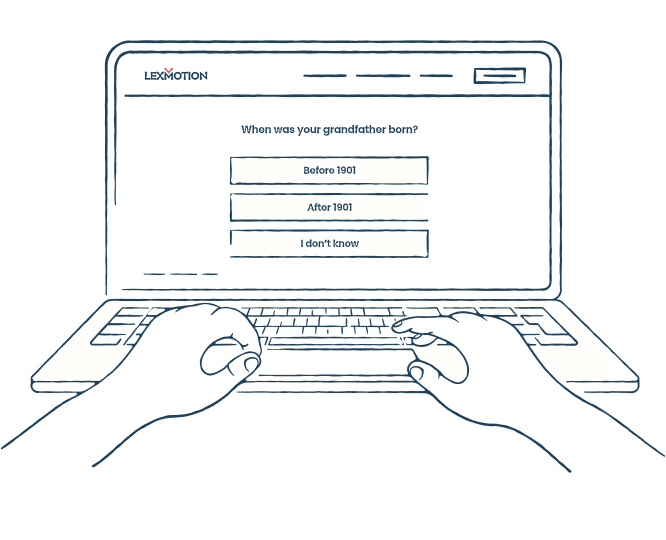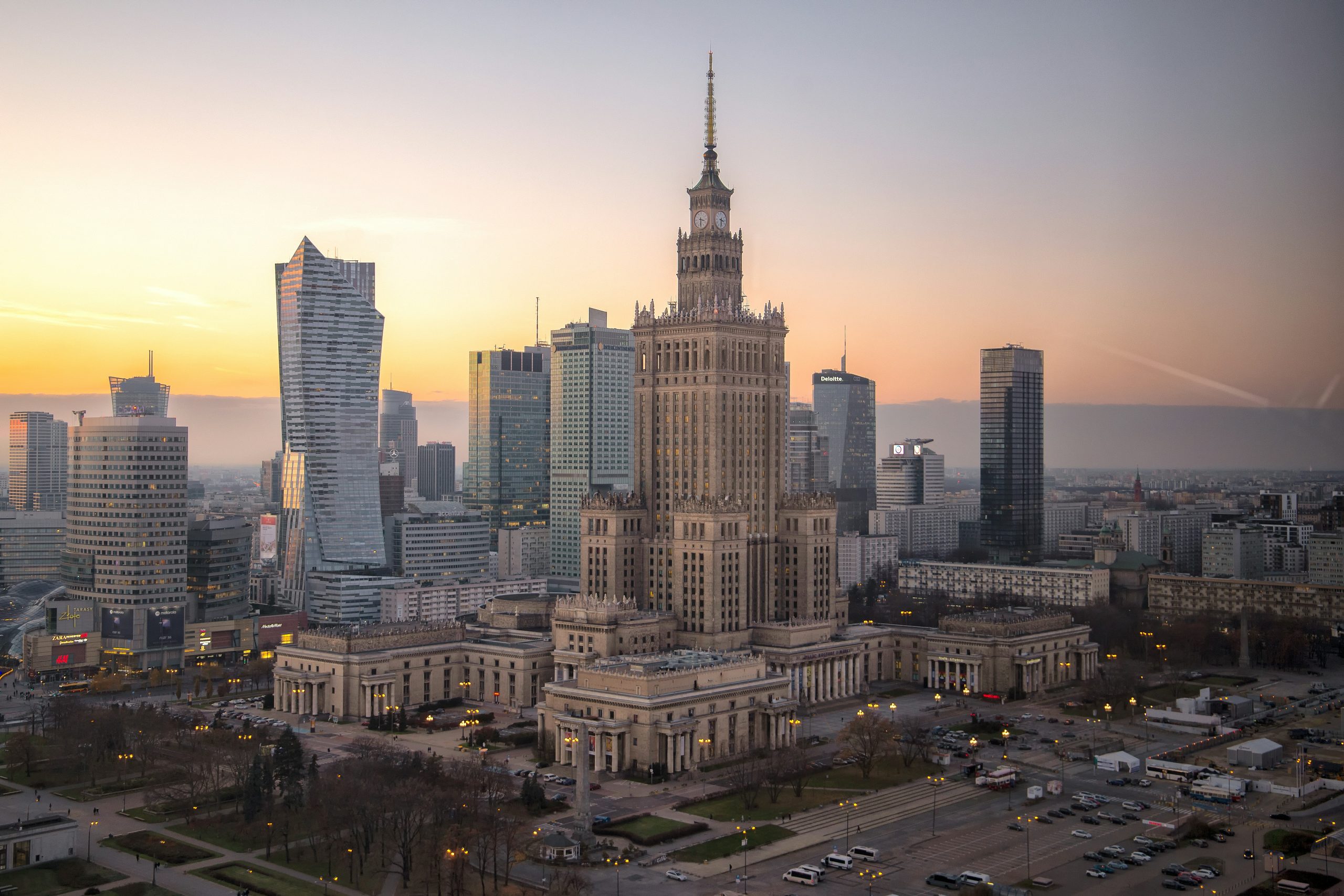Uncover your Polish heritage, delve into your ancestors’ history, and uncover unknown facts about your lineage. Exploring your Polish ancestry is a journey to deepen your connection to your identity and family.
Exploring your family roots is an inspiring journey that not only reveals the stories of your ancestors but also connects you more deeply to your identity.
For those of Polish descent, this process can be particularly enriching, as Poland’s history is full of fascinating moments that shaped the lives of many families. From regaining independence in 1918, through the challenges of World War II, to post-war transformations, each era left its mark, waiting to be discovered.
Understanding the historical context in which Polish immigrants sought new homes is also key. Each migratory period brought its own challenges, and knowing these events can help uncover family history and support the process of reclaiming Polish citizenship.
In this article, you will learn why exploring your roots is valuable, which historical events are particularly significant, and where to look for essential documents when proving your Polish descent.
Key Takeaways
|
Why Do Your Polish Roots Matter?
Exploring your Polish roots is a unique opportunity to learn about your family’s history and build a stronger connection to the past.
Poland’s history is filled with pivotal moments that profoundly influenced the lives of many Poles who emigrated for various reasons. Each of these stories holds unique experiences that may still resonate with who you are today. From regaining independence in 1918, through the 2nd World War, to political changes during the Polish People’s Republic, these events shaped the lives of millions of Poles seeking new beginnings abroad.
For those researching their Polish ancestors’ history, understanding the historical context in which their families left Poland is crucial.
Each period of emigration brought unique challenges, and understanding these events not only helps finding your Polish roots, but also aids in reclaiming Polish citizenship. By researching documents and learning the historical background, you can better trace your Polish family tree and understand the decisions your ancestors made and how they influenced future generations.
Key 20th Century Events and Polish Emigration
The 20th century was particularly turbulent for Poland, and the events of this era impacted countless families. Each wave of emigration had its unique causes, making it essential to understand the historical context in which your ancestors left Poland. When confirming citizenship status via Polish descent, these periods will greatly influence your Polish ancestry search criteria.
- Interwar Emigration (1918-1939)
After regaining independence in 1918, Poland faced numerous economic challenges. Seeking better living conditions, many Poles left the climate of Eastern Europe for countries such as the United States, Canada, and Brazil. For these families, a fresh start abroad offered hope for an improved quality of life.
From these migrations, many communities were established, and you can find Polish roots around the world. Many Polish Americans, for example, can trace Polish roots back to this period, helping them to become a recognized citizen of Poland.
Detailed information about these waves of emigration can be found in articles such as Polish Immigration to America, Polish Immigration to Canada, and Polish Immigration to Australia.
- Wartime Emigration (1939-1945)
World War II forced millions of Poles to leave their homeland. Emigration was often driven by persecution, deportation, or the necessity of military service. Many found refuge in the United States, Canada, and the United Kingdom. Jewish emigration was also significant during this period as individuals fled Nazi persecution.
Learn more about emigration during this period in Polish Immigration to the UK and Polish Immigration to America.
- Emigration During the Polish People’s Republic (1945-1989)
After the war, many Poles emigrated for political and economic reasons. The communist regime and limited civil liberties compelled many to seek better opportunities in the West. Another wave of emigration occurred in the 1980s when Poland faced severe political and economic challenges.
For more information on Polish emigration, see Polish History in a Nutshell.
Understanding Your Family History
Understanding the historical context in which families left their Polish lands is essential.
Poles emigrated to various parts of the world in search of new opportunities. Many settled in the United States, forming strong Polish communities, in Canada, which offered fresh prospects, or in the United Kingdom, where Poles played a vital role in British society. Poles also migrated to Australia, creating vibrant communities and contributing to the development of local cities.
To gain deeper insights into your family’s past, consider focusing on several key elements:
- Historical Context
Each period of Polish emigration was driven by specific reasons that shaped family lives. For instance, some migrations were the result of political hardships, while others were economically motivated. Understanding why and when your Polish ancestors emigrated can provide valuable insights into their decisions and the challenges they faced.
- Region of Origin
The geographic origins of your Polish descent are also significant, as different regions of Poland had unique histories and circumstances. For example, individuals from Silesia or eastern regions may have experienced distinct migration patterns. Knowing where your ancestors lived can also help locate relevant vital records, such as local census records and birth records. Knowing where your family members come from can help in finding the right Polish Parish, for example.
- National and Ethnic Identity
Poland was home to various ethnic groups, including Jews, Ukrainians, and Germans, which may influence the types of records and documents available. Understanding your ancestors’ nationality or ethnic group can guide your research and uncover unique information about them.
Each of these elements provides valuable insights into your family’s past and helps you better understand your roots. More than just Polish descent, you may find traces of Jewish genealogy and more, as a result of Poland’s rich and diverse history.
How Polish Citizenship Can Help Uncover Your Genealogy
Confirming citizenship by Polish descent not only grants access to European Union rights but also facilitates access to Polish national archives, institutions, and further research into your family history.
Often, the documents discovered during the citizenship confirmation process lead to further information and discoveries, deepening your understanding of your ancestors and their lives.
If your research involves grandparents or great-grandparents, you can find more information on the following pages: Citizenship by Descent – Grandparents and Citizenship by Descent – Great-Grandparents.
Uncovering your roots can be the key to a better understanding of yourself and your heritage. Your family’s past is a valuable part of your identity, one that is worth exploring to build a more complete picture of your place in history.
Summary
Discovering your Polish roots is an extraordinary journey that not only allows you to learn about your ancestors’ history but also deepens your understanding of your own Polish descent and identity. Knowing family stories and the events that shaped your ancestors’ lives enriches your understanding of the past and often provides greater clarity about your own place in the world.
The legal experts at Lexmotion specialize in confirming Polish citizenship by descent, helping clients access the necessary documents and information that may be difficult to obtain on your own.
If you’re interested in confirming Polish citizenship, simply complete our free qualification quiz so our team can review your ancestral history. Within 24 hours, you’ll receive a response with the next steps to take.

Check if you qualify for polish citizenship by descent










